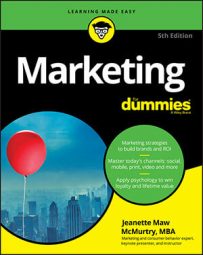If the research is true, you’re wasting 90 percent of your budget by appealing to just the 10 percent of the brain that drives the decisions people make. That doesn’t make for good marketing returns.
The unconscious mind makes rapid judgments about marketing materials and messages and dictates immediately how it should “behave.” These thoughts and actions are driven by our “schema,” or set of preconceived thoughts and beliefs that drive what we believe to be “truth,” real, and valuable.
The influence of schemas and the unconscious mind
We all have schemas associated with our political, religious, social, and brand beliefs and choices, and we typically pass off any outliers that don’t fit the notions we believe as anomalies, even when evidence proves our schemas wrong, or at least makes us question what we believe.Pew Research shows that scientists and the public are far apart when it comes to believing evidence of opinions about key social issues, such as vaccines, GMOs, and climate change. And no matter what people hear about their chosen politicians, religions, and other sources of ideology, they tend to believe what they’ve chosen to believe and ignore contradictory facts despite the sources of the scientific, validated data. For example, 88 percent of scientists say research shows that GMOs are safe. Only 37 percent of the public believes them.
Think about the things you’ve believed most of your life. How much would it take for you to change your attitudes and beliefs? Convincing customers to change brands, acknowledge your brand’s distinctions and value, and try your product over another is not always that much different. You need to build a powerful case to get consideration and trial. And you’re best able to do this by applying psychological principles related to choice rather than just sound marketing messages and personalized promotions triggered by automated CRM systems, data management platforms, and more.
Schemas reflect not only the attitudes and perceptions people have developed from their culture, community, and environments; they also reflect how the brain works in general. For example, schemas are unconscious expectations of patterns, rhythms, and such. When you listen to music, your brain has a set perception for how all the melody will harmonize, how the notes will scale, and how the rhythm will flow. People like music that fits this “schema,” which was used by the masters and by modern‐day songwriters and musicians.Just like these mental schemas that guide expectations when listening to music, aligning with political and religious organizations, and more, people have “brand schema,” or preset expectations for experience with brands they trust.
These schemas associated with products and brands are largely built on prior experiences, memories, and people’s conscious and unconscious values.
The conscious and unconscious minds often disagree
Young & Rubicam did a study in 2013 involving adults throughout the United States, South America, and Asia to see how close people’s conscious values line up with their unconscious ones. What they found, and later published in a report called “Secrets and Lies,” is surprising to most. It shows just how far apart the conscious and unconscious thought processes are. Take a look at the table below. Just like psychologists have said for years, people are driven, unconsciously, for survival, to connect with outers in meaningful relationships, and by the traditions in which they were raised, although few want to admit that if you look at attitude reports for younger generations of consumers.| Top Conscious Values | Top Unconscious Values |
| Helpfulness | Maintaining security |
| Choosing own path | Sexual fulfillment |
| Meaning in life | Honoring tradition |
- Most interesting is that the unconscious mind results showed “helpfulness” as dead last, 16 of 16 variables tested, while the conscious mind put it as the number‐one value.
- The conscious mind listed “sexual fulfillment” as number 14 of 16 variables, even though it shows up in the number‐two spot for the unconscious mind. Perhaps people don’t like to admit consciously that they need others in their lives to be happy? Most people probably like to think they’re fine and independent on their own, but years of psychology studies show that people are all generally happier, more fulfilled, and reach their greater potential much more when they have fulfilling relationships with others.
What you can take from this is that what people say and think is often not what they really do. This alone has huge implications for what marketers need to emphasize most in marketing content, which is not what they’ve typically been doing.
Psychological drivers apply to B2B even more then B2C
Research shows that personal values influence people’s choices for consumer goods and even more so for business purchases. In fact, Google/Motista research shows that- B2B customers are more emotionally connected to their vendors and service providers than B2C consumers.
- When personal values are present in a business choice, purchasers are eight times more likely to pay a premium price.
- In contrast, only 14 percent of business purchasers see a real difference between suppliers and are willing to pay for that difference.
(To delve more into this research, check out “From Promotion to Emotion: Connecting B2B customers to Brands.”)

